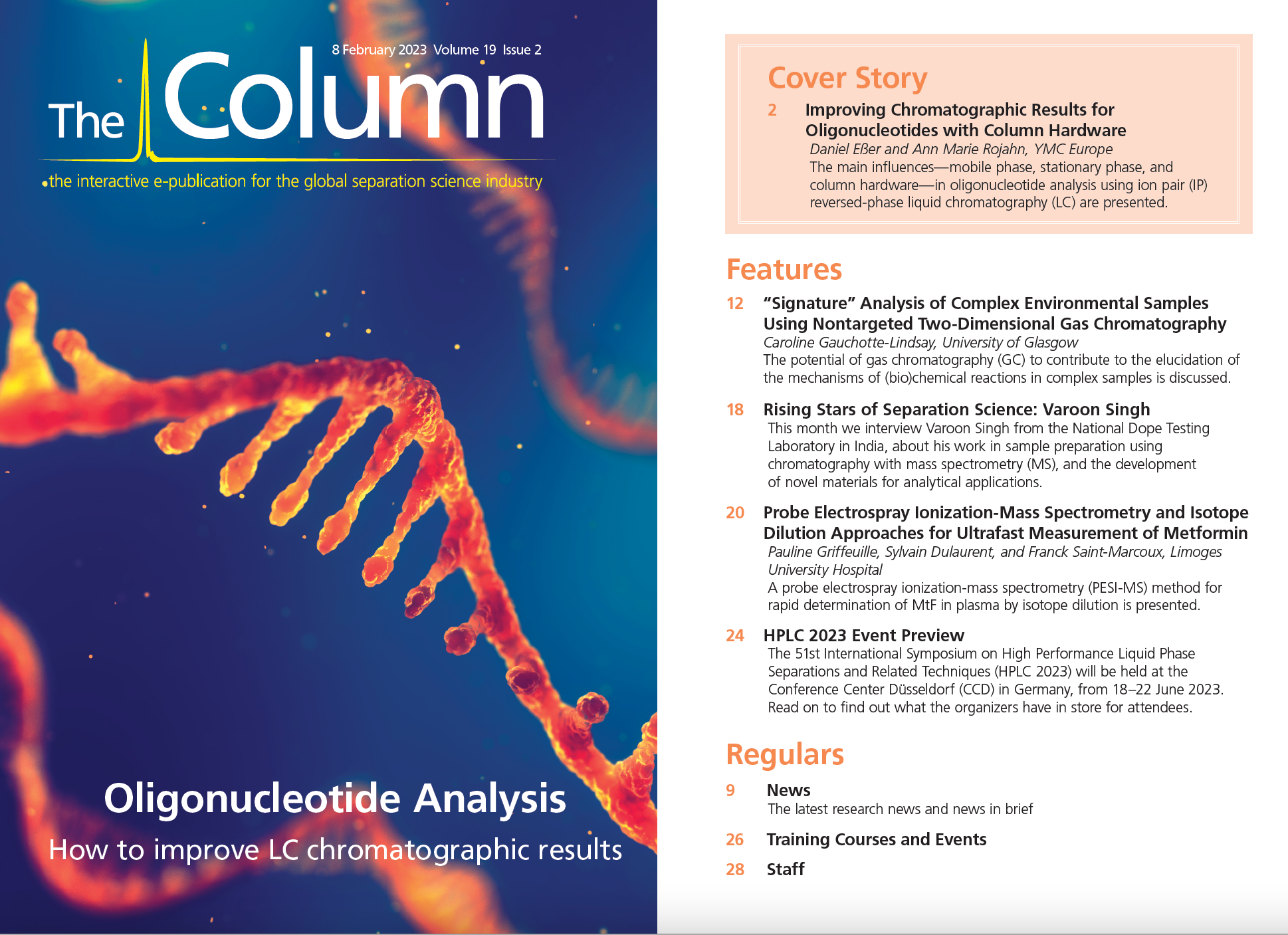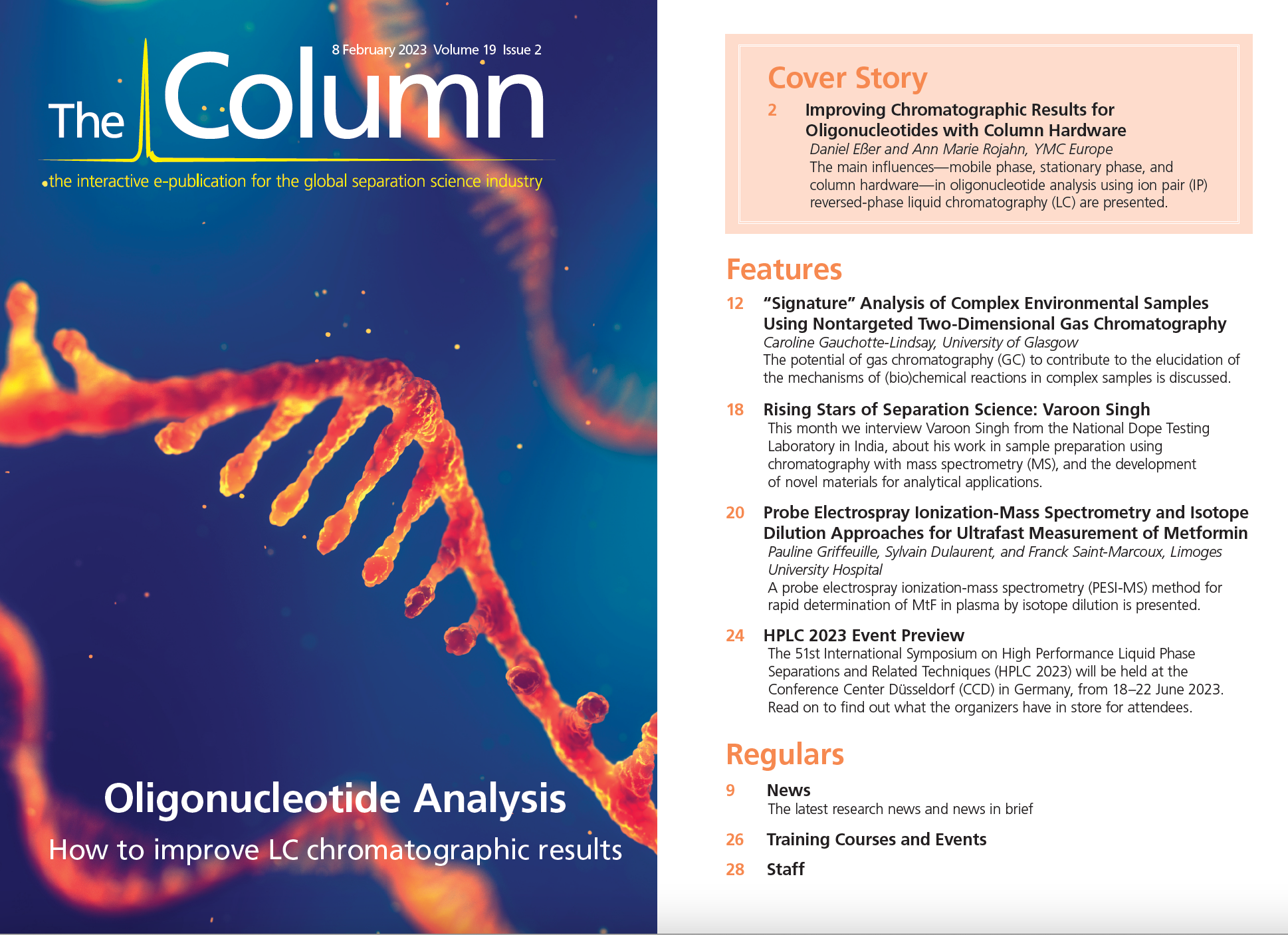HPLC 2023 Event Preview
The 51st International Symposium on High Performance Liquid Phase Separations and Related Techniques (HPLC 2023) will be held at the Conference Center Düsseldorf (CCD) in Germany, from 18–22 June 2023. Read on to find out what the organizers have in store for attendees.
From the first HPLC conference in 1973, the HPLC Symposium Series has established itself as the world’s largest conference on liquid chromatography (LC) and other liquid phase separation techniques. With more than 1200 attendees in the European edition of the HPLC conference series, HPLC 2023 presents a unique opportunity to contact leaders in chromatography and mass spectrometry (MS). The rich programme covers all aspects of separation science in liquid phases and supercritical fluids, including ion mobility spectrometry (IMS) and advanced detection technologies, especially MS. The conference focus ranges from fundamentals of chromatography and theory, new separation materials and column technologies, to innovations in the field of microfluidics. Recent developments in various applications will be covered, ranging from the (bio)pharmaceutical, chemical, and food industries to environmental, clinical, forensic analysis, and bioanalysis. The symposium will feature short courses and tutorials, plenary lectures, and keynote presentations by leading international scientists in these fields. However, the majority of the programme will be compiled from submitted abstracts.
Several giants in the field have already confirmed their contributions to HPLC 2023 and will shed light on the newest instrumentation as well as the present and future ability to cope with molecular phenomics, the comprehensive measurement of molecular systems. Some lectures will explain how to skilfully hyphenate separation sciences with MS for multimodal analysis. At HPLC 2023, delegates will be able to enjoy the journey through the chromatographic universe, reaching out to innovative and revolutionary column technologies. Miniaturized analysis formats using high density droplet arrays for high‑throughput and single-cell analysis will guide us into the future. New advanced analytical technologies that can deal with the challenges of next‑generation pharmaceutical characterization, allowing the high structural complexity of protein therapeutics to be resolved, and even looking into biopolymer folding and interactions using ion mobility mass spectrometry, will be discussed. An industrial plenary will address the question of whether the digital transformation of the analytical laboratory is a big bang or just evolution?
Another focus will be industrial analytics. Two sessions will be offered specifically for analytical issues from the chemical and pharmaceutical industries, both led by two industrial researchers. For the younger generation, HPLC 2023 will offer a wealth of short courses and tutorials by the leading scientists in the field. There are several unique opportunities to meet and discuss with the experts of separation science and related fields.
As a conference venue, the Convention Center Düsseldorf offers several advantages. It is centrally located in Europe in one of the most densely populated regions of Germany, and has excellent transport links.
Düsseldorf is a vibrant city and is known for its modern architecture and Rhenish tradition. Guests are spoilt for choice between attractions such as the Old Town, the historic part of the city, the Königsallee (a noble shopping mile), the Rhine promenade, or the architecturally and gastronomically attractive MedienHafen (MediaHarbor).
The event is organized by Michael Lämmerhofer (University of Tübingen) and Oliver J. Schmitz (University of Duisburg‑Essen) under the auspices of the German Chemical Society (GDCh) and the AK Separation Science working group.

Common Challenges in Nitrosamine Analysis: An LCGC International Peer Exchange
April 15th 2025A recent roundtable discussion featuring Aloka Srinivasan of Raaha, Mayank Bhanti of the United States Pharmacopeia (USP), and Amber Burch of Purisys discussed the challenges surrounding nitrosamine analysis in pharmaceuticals.

















